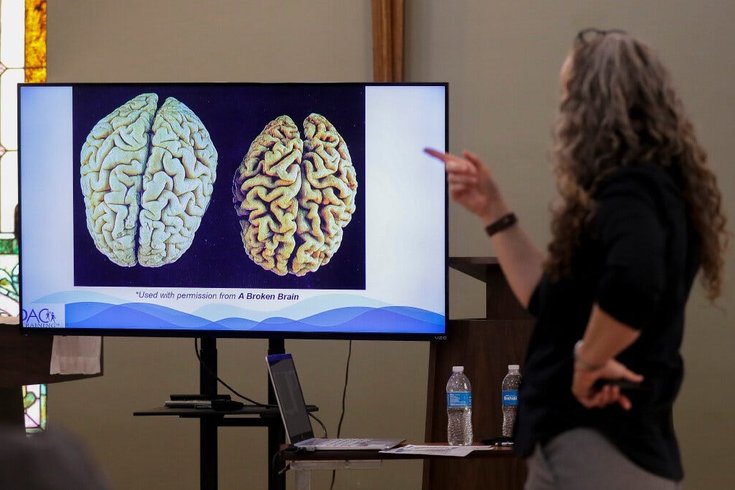
January 13, 2025
 Tork Mason/USA TODAY NETWORK-Wisconsin via Imagn Images
Tork Mason/USA TODAY NETWORK-Wisconsin via Imagn Images
Researchers found that 4 in 10 people developed dementia, a group of diseases that affect memory, over time. The image above compares brains scans from patients with and without the condition.
Dementia diagnoses are expected to rise substantially over the next four decades, with roughly 1 million U.S. adults developing the disease each year by 2060, new research shows. That's double the 514,000 observed in 2020.
The study, published Monday in Nature Medicine, sought to measure the lifetime risk of dementia, an umbrella term for several diseases that affect memory and cognition. That risk was 42% for all Americans past the age of 55, the researchers wrote, though some groups are even more susceptible. Black adults, women and people with certain genes linked to Alzheimer's, all faced higher lifetime risk of dementia in the study.
"Policies that enhance prevention and healthy aging are urgent public health priorities for reducing the substantial and growing burden of dementia," the study concluded.
The research was based on data from 15,043 participants who were all 55 years old and free of dementia at the start of the study. Over time, 4 in 10 developed dementia. The median age of diagnosis was 81, but 79 for Black adults. This racial disparity "may reflect the cumulative effects of structural racism and inequality throughout the life course," the researchers wrote, suggesting that unequal access to nutrition and education at an early age, coupled with limited access to health care later in life, contributed to the difference.
Women also had a "substantially" higher risk than men of developing dementia, a trend observed in other studies. This is likely due to the fact that women live longer; the U.S. life expectancy for them is 80.2 years, compared to 74.8 for men.
The researchers acknowledged that their numbers diverged from previous research, which found lower lifetime dementia risks. But earlier studies may have detected fewer cases due to a strict reliance on cognitive testing at in-person visits or medical records, the authors said. Their research also incorporated phone interviews, which identified about half of the dementia cases in the study.
Follow Kristin & PhillyVoice on Twitter: @kristin_hunt
| @thePhillyVoice
Like us on Facebook: PhillyVoice
Have a news tip? Let us know.